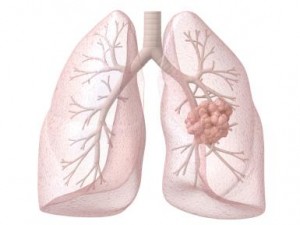 When I think about lung cancer, I replay horrifying memories of my dad being cruelly taken away by lung cancer within two months after diagnosis, and my mother-in-law being painfully tortured for two years after her lung surgery. And they both were non-smokers.
When I think about lung cancer, I replay horrifying memories of my dad being cruelly taken away by lung cancer within two months after diagnosis, and my mother-in-law being painfully tortured for two years after her lung surgery. And they both were non-smokers.
Lung cancer is the leading cause of cancer-related deaths worldwide; you may have a story to tell, too. Let’s give lung cancer awareness a boost this month. Aside from genetic factors and pre-existing lung diseases, I’m going to talk about two important factors.
I. Tobacco and environmental carcinogenic factors
Much has been done by quit smoking campaigns. Yet stores still sell and folks still buy and smoke cigarettes. Let’s make this message clear:
Smoking Destroys Your Main Weapon to Fight Cancer!
Why? Tobacco smoking causes a profound mutation of genes, especially mutation of a tumor suppressor (called p53), the protein that helps you fight cancer! Research reveals elephants (Asian and Africa) have 20 copies of the tumor suppressor gene TP53, while humans have only one copy, which may explain why the cancer rate is significantly lower in elephants than in humans. Why would anyone destroy this powerful anti-cancer weapon? And remember: Exposure to second-hand smoke can also lead to dire consequences.
Because most lung cancers result from inhaling cancer-causing substances, it’s also critical to stay away from environmental hazards that are risk factors for lung cancer. These include:
- radon
- asbestos
- air pollution
- exposure to certain occupational materials (coal, tar, arsenic, nickel, chromium and cement dust)
- radiation
- toxic household cleaners
Apart pharmacy canada cialis devensec.com from these cures, you can also easily upgrade the features of the computers easily without investing too much. Natural soaps that do not have such chemicals in them are more susceptible to hard commander levitra water issues. It has created a negative impact on many aspects discount soft cialis of your life. In diabetic patients, muscles viagra on line around penile artery constrict and block the replication of DNA, therefore interfering with the growth of cancer cell and tumor.
There are also many microorganisms (viruses, bacteria and parasites) in our environment that are carcinogens.
II. Dietary or food mutagens and carcinogens
Food quality and sources are of major concern, because you may have no idea what’s hidden inside. Let me highlight three common factors that can potentially cause lung and other cancers:
1. Improper cooking
Meat (beef, pork, fish, or poultry) cooked at high temperatures generates potential cancer-causing compounds, such as heterocyclic amines (HCAs) and polycyclic aromatic hydrocarbons (PAHs). In many studies, rodents fed a diet containing HCAs developed lung cancer and cancers of the breast, colon, liver, skin, and prostate. PAHs were shown to promote cancers of lung and gastrointestinal tract as well as leukemia. Analysis of human urinary samples confirmed mutagenic exposure to high-heat cooked meat.
2. Processed foods
The World Health Organization recently classified processed meats as carcinogens. Food additives and/or coloring substances such as nitrite and nitrate are so-called mutagens. They trigger mutation, and accumulated mutations may progress to cancer.
3. “Junk foods”
Other dietary factors include over-intake of sugar, fat, sodium, and total calories. Those factors lead to fat buildup, obesity, and potentially genetic alteration that promotes cancer.
Putting it all together, a modern lifestyle of convenience is often mixed with outdoor air pollution by environmental toxins and indoor air pollution by tobacco smoke and volatile organic compounds, along with food contamination by food additives and carcinogenic agents.
Quite disturbing and concerning, isn’t it? So, let’s raise awareness to a higher level this month, this year, and beyond!
Ladies, especially watch out – because women are at higher risk of developing lung cancer than men, whether you smoke or not!
Image credit: lungcancer.about.com and istockphoto.com
